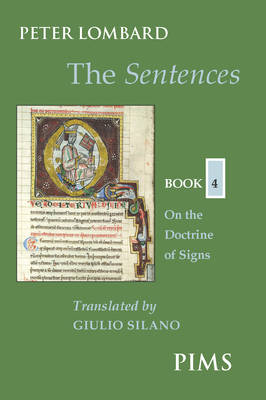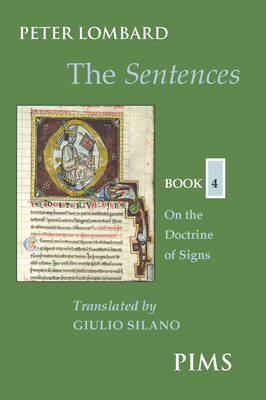
- Afhalen na 1 uur in een winkel met voorraad
- Gratis thuislevering in België vanaf € 30
- Ruim aanbod met 7 miljoen producten
- Afhalen na 1 uur in een winkel met voorraad
- Gratis thuislevering in België vanaf € 30
- Ruim aanbod met 7 miljoen producten
Zoeken
Omschrijving
The principal signs and instruments of grace available to Christians as a result of Christ's redeeming work are the sacraments of the Church - baptism, confirmation, the Eucharist, penance, extreme unction, holy orders, and marriage. These are the main subjects of Book 4 of the Sentences, comprising forty-two of its fifty Distinctions. In particular, penance and marriage (with regard to which the Lombard's consensual theory was to prove extremely influential) receive extensive discussion. The last eight Distinctions are given over to a treatment of the last things: the bodily resurrection, purgation, hell, the last judgement, and eternity. The Book concludes with a reference to a text of Isaias that serves as an allegory of the function and purpose of the Sentences as a whole.
Specificaties
Betrokkenen
- Auteur(s):
- Vertaler(s):
- Uitgeverij:
Inhoud
- Aantal bladzijden:
- 370
- Taal:
- Engels
- Reeks:
- Reeksnummer:
- nr. 48
Eigenschappen
- Productcode (EAN):
- 9780888442963
- Verschijningsdatum:
- 1/09/2010
- Uitvoering:
- Paperback
- Formaat:
- Trade paperback (VS)
- Afmetingen:
- 152 mm x 229 mm
- Gewicht:
- 566 g

Alleen bij Standaard Boekhandel
+ 144 punten op je klantenkaart van Standaard Boekhandel
Beoordelingen
We publiceren alleen reviews die voldoen aan de voorwaarden voor reviews. Bekijk onze voorwaarden voor reviews.











